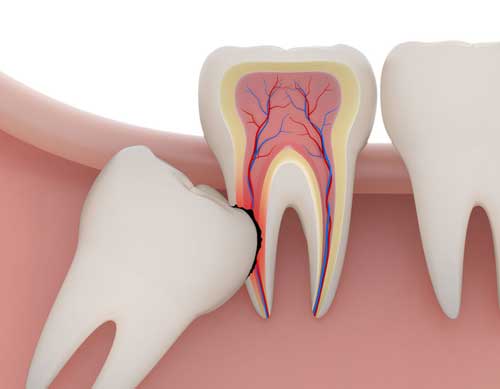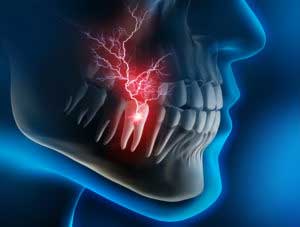Should they stay or should they go?
4 ways to know if your wisdom teeth should come out
Many teenagers and young adults will be getting their wisdom teeth out this summer and during Christmas vacations.
But is it totally necessary to have them removed?
Here are four things we look for with you to help you decide.
- Is there enough room for them? Many times there is not enough room for the wisdom teeth, gum tissue is overlying the tooth partially, and often it becomes irritated and infected.
- Can they be kept clean? it is very hard to keep clean with brushing and flossing, and increased pocketing can occur with an increased susceptibility of gum disease.
- Are they affecting adjacent teeth? If the wisdom tooth gets trapped underneath the second molar and starts eating away at that tooth there is a good possibility of losing the second molar.
- Are they changing your bite? Lower wisdom teeth exert a heavy force towards the front of the mouth which can cause the lower front teeth to become crooked and may disrupt the effect of corrective orthodontics work (braces).
Dr. Rothchild can help you assess if your wisdom teeth should be removed and can even examine your teeth for cavities without X-Rays using the new CariVu technology.
* To make an appointment, call our office at 970-382-7780.
When to Remove
Wisdom teeth can be removed at any age but probably the best time to remove a wisdom tooth is when the tooth has formed a crown with a little part of the root. This is about 15-16 years of age. At this time the risk to nerve damage in the lower jaw can be minimalized. If the upper teeth are close to the sinuses, then it may be better to wait a few years as the teeth will move further down into the bone away from the sinuses, to prevent the possibility of perforating the sinus or pushing the tooth into the sinus during removal. At an early age the bone is softer and it is easier to lift away which can result in faster healing time.
Bottom Line:
I believe that a decision to remove or not should wait until the roots are pretty much formed to see where and if the teeth may come in or not. There may or may not be adequate space or the ability to keep the area clean and that can be a contributing factor in determining the need to remove or not to remove. This, of course, is done on an individual basis.
John A. Rothchild, DDS, FAGD, MAGD, DAAPM, NMD, IMD



